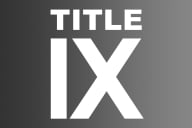You have /5 articles left.
Sign up for a free account or log in.
Can our IHE community put the books that we read at the center of our conversations on this platform?
Can books, rather than articles or TV shows or blogs or movies or tweets, fuel our discussions?
Might we claim books as our unit of analysis for debate, dialogue, and learning?
Why books? Why are books a better unit of discussion and debate? Why should our community dialogue be constructed on a foundation of books? Is reading and discussing a book really any more consequential than reading and discussing an article, blog post, or opinion piece?
Do books actually nourish us, and our community, in a way that is superior (or just different) from everything else?
And do we really need to choose?
Reading books and watching TED talks are not conflicting behaviors. Talks, articles, blogs, and tweets can help us find the books we want to read. The people who write our books also show up in podcasts and in blogs, on Twitter and in videos. Books are part of an information and conversation ecosystem - they can co-exist with other media and share our attentional energy.
But … but …. there are only so many minutes in a day. Time spent on Facebook or The Economist (or YouTube or HBO) means less time to read - and maybe discuss - books.
When we watch TV we can also (and we always do) dip into other media. TV now is accompanied by Twitter and surfing and by posting, skimming, commenting, and searching. With books we can’t do two things at once. When we read a book all of our attention is on that book.
The exception to the rule that books are not built for multitasking is, of course, audiobooks. With audiobooks we can do lots of other things - from doing the dishes to folding the laundry to walking around campus to watching a soccer game. What we can’t do while listening to an audiobook is surf the web, go on Facebook, construct a tweet, or comment on a blog.
Perhaps the reason that we should claim books for the core of our conversations is that books are the key building blocks of our minds. Books build for us the foundation of our thinking. Books, by their length, give ideas room to stretch and breathe. Books can accommodate arguments built on evidence and narrative. A great novel - or even a good beach book - gives the author the space for the building of character and the development of plot that is not possible at the scale of every other media.
So my basic argument is that we should all read more books - and then instead of talking about other stuff on social media (including our IHE community) - that we should talk about books.
This argument has all sorts of problems.
The big problem is that books take too damn long to read. We can’t build our conversations around books because books are too slow. Our social media conversation is daily on IHE, hourly (or by minute or even second) on other social media platforms. Articles, TV shows, TED talks, presentations, and blog posts can be consumed and discussed at a pace that matches our social media metabolism.
The time it takes to read a book makes it unlikely that we will all be reading the same book. We can talk about the same article or installment of Game of Thrones (at least those privileged enough to have access to HBO), as an article or an episode represents an hour or less of time investment. Books take many hours to read - and the time investment necessary to read a book means that few people in an established community (such as our IHE community) will have read the same book.
The other problem with books is their high inherent opportunity cost. Reading one books crowds out an enormous amount of content consumption and social interaction. We would read more - but we have too much other stuff to read. We have way more books at our fingertips (our nightstands and our tablets and our bookshelves and e-readers) than we have time to read. There is too much e-mail to get through, too many things to read for work. Too many magazine pieces, too many journal articles, too many IHE stories, and too many newspaper pieces that we should be reading.
And sometimes, reading a book requires more energy than we have to give. Sometimes we need our media consumption to be passive. Often, our time is so fractured - with so many demands on our attention - that devoting the concentrated focus on a book is just not feasible. It is one thing to be interrupted every other minute from Facebook or HGTV, quite another to be constantly pulled out of a book.
You can come up with more problems with my book-centric social media vision. Books are expensive relative to advertising based media. People’s taste in books is idiosyncratic and varied. Books are a slow, expensive and unwieldy medium in which to base our conversations.
Besides, this is a community that is supposed to talk about higher ed stuff. Isn’t it a bit of stretch to relate every book that we read - every nonfiction book and mystery and science fiction novel - to the world of postsecondary education? Not every book that we read needs to be discussed in this community - right?
What do you think?
Less of everything else - and more books?
What are you reading?








